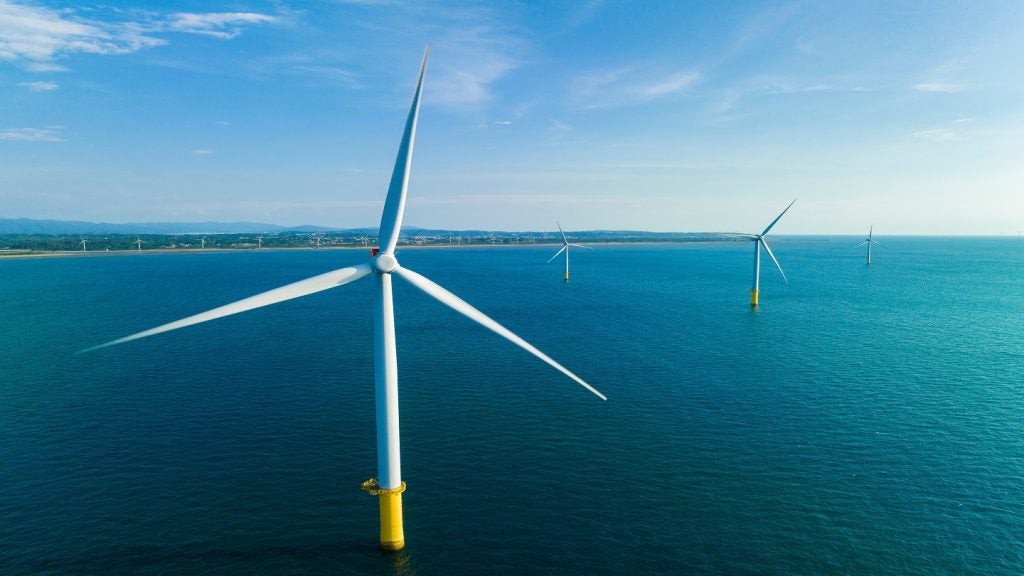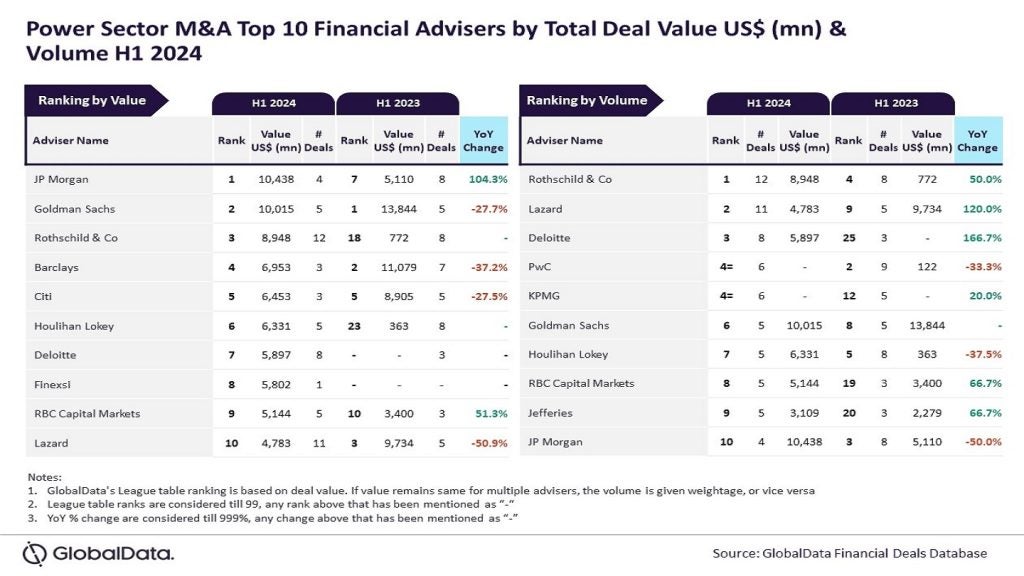
While towering wind turbines and sprawling solar facilities may draw much of the public’s attention with regard to new clean power investment, there is an entirely different stream of revenue that could make or break the world’s clean energy future: pension funds
A report from the Organisation for Economic Co-operation and Development (OECD) found that, by the end of 2019, the total value of pension funds across the body’s 37 member states had spiralled to over $32tn, an increase of 13.9% on the previous year.
How well do you really know your competitors?
Access the most comprehensive Company Profiles on the market, powered by GlobalData. Save hours of research. Gain competitive edge.

Thank you!
Your download email will arrive shortly
Not ready to buy yet? Download a free sample
We are confident about the unique quality of our Company Profiles. However, we want you to make the most beneficial decision for your business, so we offer a free sample that you can download by submitting the below form
By GlobalDataThis astronomical figure is highlighted by the work of the US, which posted a pension fund value of $18.7tn in 2019, and the growth of pension value of 58.2% across this period in Armenia, suggesting that countries beyond those that would be considered economically dominant are benefitting from this system.
However, there is a catch. Many of these investments are made into traditional safe haven assets which, in the past, has translated to coal, oil, and gas, well-established sectors where a sudden collapse in demand is unlikely.
This trend has even continued amidst the increased attention paid to climate change in recent years, with the Norwegian national pension fund reporting an investment of around $42.3bn in oil and gas alone in 2019, up from around $38bn the previous year.
The continued reliance of the pension industry on fossil fuels, therefore, has raised the question as to whether the world can ever truly reduce its dependence on polluting energy sources if so much of the world’s wealth, and potential for wealth, is tied up in fossil fuels?
In response, some of the world’s largest pension fund managers are beginning to turn away from fossil fuels. Last year, the UK’s largest pension fund, the National Employment Savings Trust, announced plans to divest from fossil fuels.
Additionally, in January this year, insurance, pensions, and asset management company AEGON announced similar plans to reach net-zero emissions across its auto-enrolment funds by 2050 and halve carbon emissions linked to its default funds by 2030. But with clean power a less stable investment than fossil fuels, and generations of entrenched investing practices now falling obsolete, how likely is it that pension funds will change in the long-term?
Great power and great responsibility
Pension funds are an undoubtedly powerful financial force. As they often bring together government support and private management, and are funded by a combination of taxpayer money, state backing, and lucrative investments, they are among some of the largest and most powerful financial reserves in the world.
However, as is often the case with lucrative investments, social and environmental responsibility can be left behind as profits balloon. Tim Orton, managing director for investment solutions at Aegon, discusses how, in the company’s climate goals, it needs to balance financial gain with responsible investment.
“Pension funds are already making significant efforts with regard to ESG (environmental, social, and corporate governance),” Orton explains. “From an investment perspective, clean energy is at quite an early stage and key considerations for both trustees and providers are the liquidity and risk of any asset in which a fund invests.”
Aegon’s work highlights the growing idea of responsibility within pension funds, and one that is at the heart of Aegon’s recent changes. The company has already taken steps to improve its own environmental performance, from reaching carbon neutral status at its own facilities in the UK, the US, and the Netherlands, to supporting cross-industry initiatives such as the UN Sustainable Development Goals.
Aegon plans to take this accountability one step further, by offering a range of pension plans, with investments into different sectors, to account for the preferences of would-be customers.
“There are some stand-alone clean-energy funds that could be made available to members wanting to invest solely in green energy,” continues Orton. “This would need to be an active fund selection made by the member rather than the trustees [or] provider deciding to make a change that affects all.
“It is important for fund providers to have a broad range of ESG solutions out with traditional defaults. Aegon has over 200 ESG funds available on our Aegon Retirement Choices platform that members can look through to see which matches their ESG convictions best.”
Meeting divestment goals
While the idea of taking greater responsibility is admirable in theory, there are practical challenges to this ESG-driven approach, not least financial ones.
“Clean energy companies typically show higher volatility than many established companies that are conventionally held by pension funds and have less liquidity so there are some challenges to mainstream funds investing in the sector,” explains Orton, highlighting how, on a practical level, many clean energy facilities are simply not as attractive as fossil fuel projects.
“Typically, ESG strategies have had higher costs than more conventional strategies tracking mainstream indices, however we work hard with our fund managers to keep costs as low as possible,” Orton continues.
“Additionally, if a portfolio was designed today that was net-zero without using carbon offsetting, it would typically be a very concentrated portfolio, cost more than the majority of default funds, and be more risky due to its performance relying on a smaller number of companies, which generally increases volatility.
“As such we need to consider how reaching net-zero will impact the cost and current risk/return of the default solution.”
However, this is not to say that more responsibly-backed pension funds are impossible. Indeed, a synthetic solution, where investments can become simultaneously financially attractive and socially responsible, could be possible in the long-term.
Aegon believes that ESG targets are not important because of some abstract significance that has been attached to them, but because they represent sensible investment strategies and considerate policy decisions, motivations which ensure profitability remains at the heart of the company’s work.
“We carefully assess the likely impact of any change before making it, taking into account how the asset allocation might be affected, the risk of the fund, costs, and likely long-term returns,” says Orton. “We believe firmly that transitioning our funds to net-zero will benefit all customers invested in the funds through investing in long term sustainable businesses.
“We do not believe that the transition to net-zero will have harmful economic effects,” Orton continues. “Achieving net-zero isn’t just about selling out of companies, it involves seeking to influence companies to make stronger climate commitments and for those in the energy business research ways of providing cleaner power. As renewable [and] clean energy matures, it will create jobs so supporting economic growth.”
Clean investments, fair funding
There is also hope that a reformed pension fund sector could help address some of the striking imbalances in the distribution of wealth, with the established model of investments made into long-entrenched industries doing little more than to direct money back towards already-wealthy investors.
The OECD report found that seven countries – the US, the UK, Australia, the Netherlands, Canada, Japan, and Switzerland – held over 90% of all pension fund assets across the OECD, and the wealthiest non-OECD member, Brazil, has less than one-quarter of the pension fund wealth of Switzerland.
This idea is particularly important considering the potential for renewable power to not only deliver energy that is clean, but that helps break down the traditional divide of the wealthy and the poor. This idea of a “just energy transition” is increasingly at the forefront of energy reform, and Aegon has taken into account this increasing demand for clean, fair power in its products.
“Our customer and adviser research has highlighted a growing interest in ESG investing,” says Orton. “ESG investing captures environmental, social, and governance issues, it does not solely focus on clean power investments.
“We are seeing increased support for ESG investing from the regulator, investment consultancies, and end investors. Renewable energy will play a part in the transition to a low-carbon economy and investment solutions using ESG scoring matrices will score such companies highly.”
Aegon’s own research supports this initiative. In a survey of its customers completed in December 2020, 77% of respondents said that climate change is an “important risk” to consider when investing and 45% “wanted to see investing for a net-zero carbon future mandatory”.
While completely divesting from fossil fuels overnight is perhaps extreme for Aegon’s liking, or indeed any company’s, the firm is trying to cater to this push for more responsible investments of all kinds.
“We want to do all that we can to reduce the risks from climate change so we have wider initiatives underway, including reducing our carbon consumption, improving recycling, and looking to reduce the impact of any business travel,” says Orton.
“It is important for investors and the industry to note that ESG investing captures environmental, social, and governance themes,” he continues. “The environmental theme is important [for] carbon emission reduction but it is also important for companies to strive for high social environments for their workforce, including sound working conditions for employees. Additionally, companies with rigorous governance standards are less likely to face regulatory fines through poor tax transparency or poor anti-corruption measures.”








